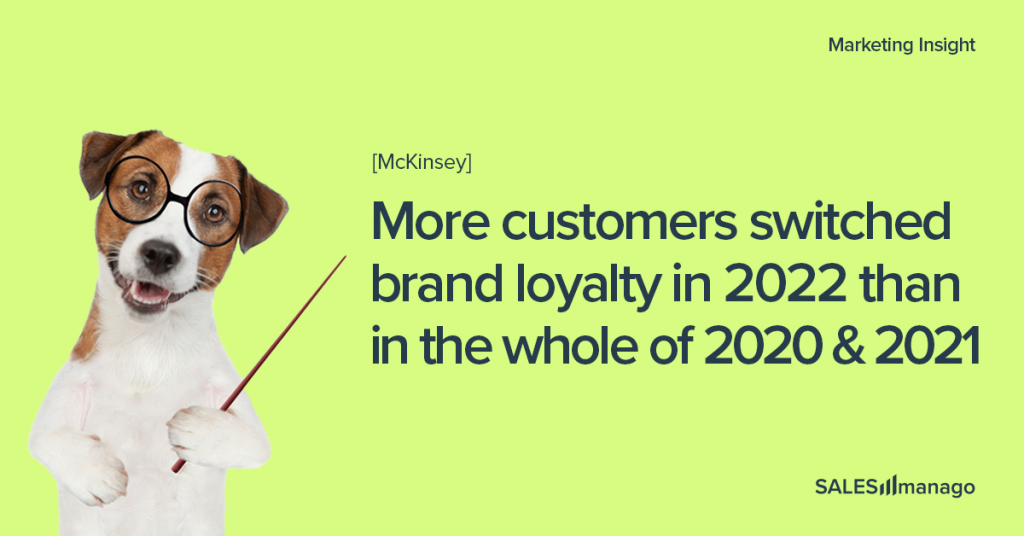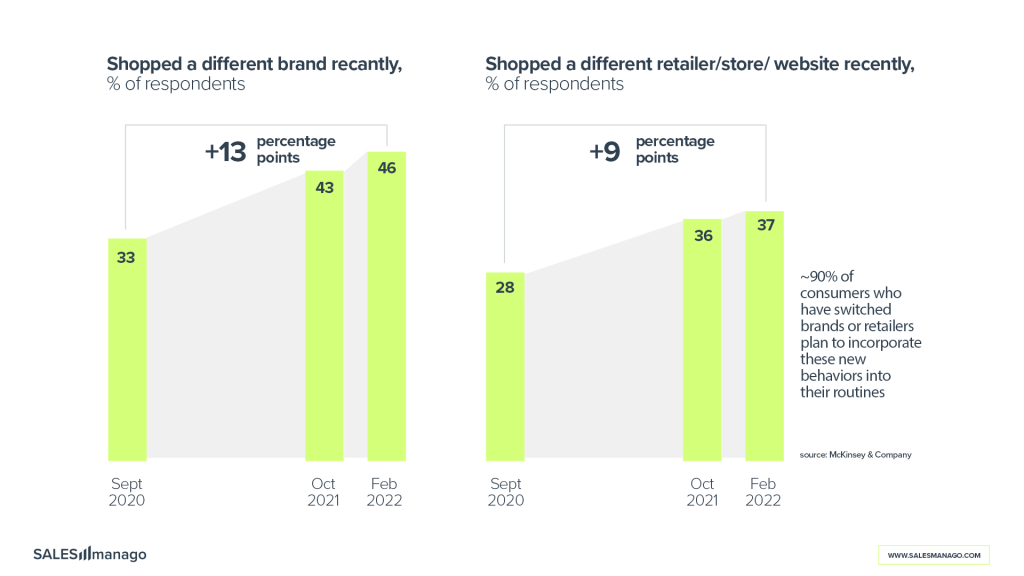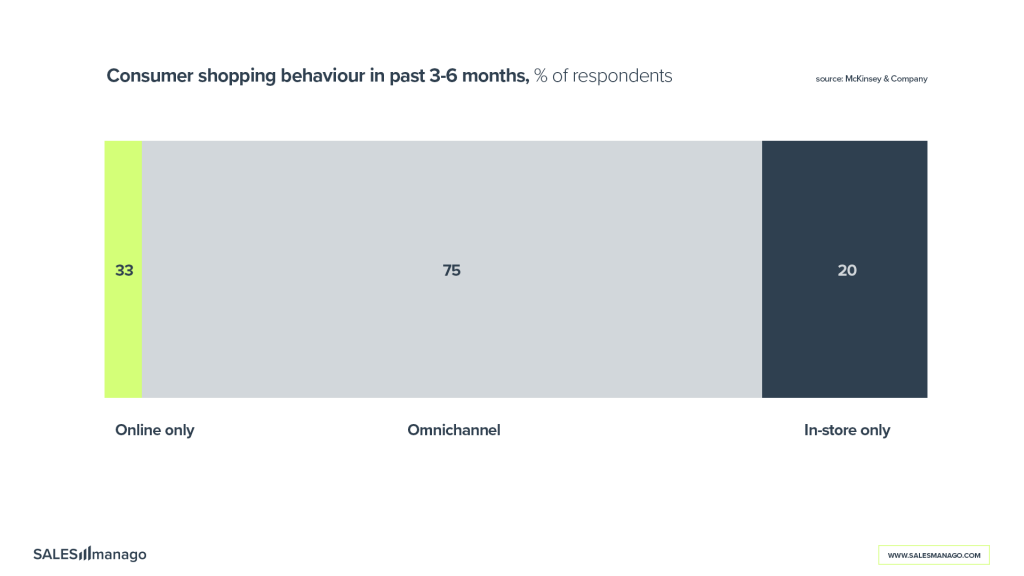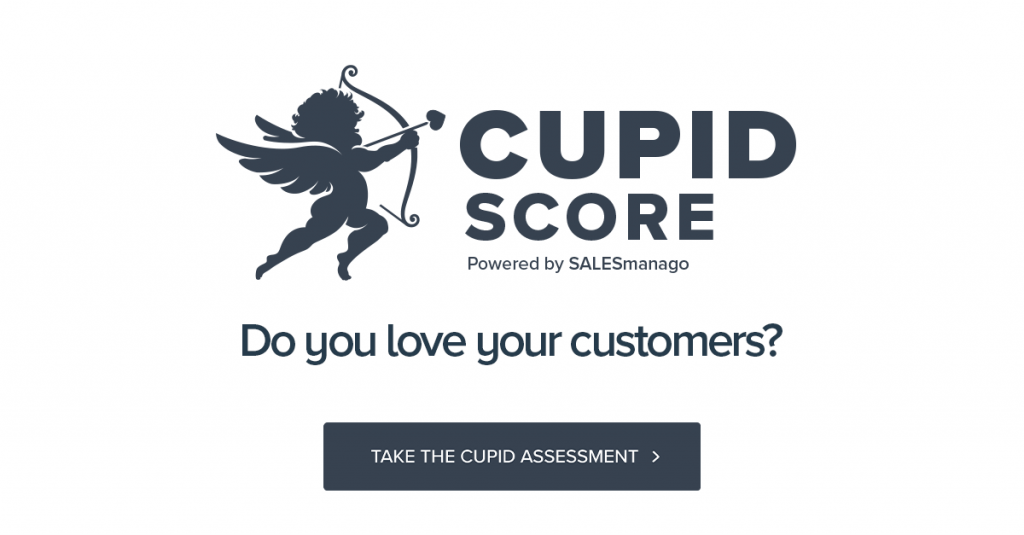
Inflation makes customers think twice before they decide to open their wallets. And although they are still buying, their behavior has changed. In the eCommerce sector, we observe an inflation-induced loyalty recession that puts marketers in a paradoxical situation: they must increase their effectiveness without increasing the costs of operations. There is a way out of this—the lean way.
Customer behavior has changed
Many recent studies and surveys show inflation-induced customer behavior changes. Among them, the most significant for eCommerce are:
Inflation hasn’t stopped consumers from buying—yet!
In the early months of 2022, amid record inflation, US consumers continued to open their wallets. As McKinsey observes, US inflation grew to nearly 8.5% in March 2022, with May 2021 to March 2022 period showing the highest inflation in a decade. Yet, US consumers spent 18% more in March 2022 than they did two years earlier and 12% more than they were forecast to spend based on the pre-COVID-19 trajectory.
Nominal year-on-year growth however was less than that in late 2021.
Loyalty is becoming scarce
Going by Adobe Digital Economy Index, pre-pandemic online prices were declining at an average rate of 3.9% every year on the back of the 23% increase in digital purchasing power. Not anymore. As per Adobe Digital Price Index, digital prices went up by 2.9% year-over-year.
Now, as McKinsey’s study shows, more US consumers reported switching to different brands and retailers in 2022 than at any time since the beginning of the pandemic—and most of them say they intend to incorporate that behavior into their routines. With inflation at a record high, more people are looking for value; price is at the top of the list of consumers’ motivations for switching.

Customers are going back to brick-and-mortar stores
Shoppers are spending more both online and in stores. People began shopping online in droves at the start of the pandemic when they didn’t have much of a choice. But it turns out that many people enjoy the convenience that e-commerce offers. Even when brick-and-mortar stores reopened, spending in online channels continued to climb. Year-on-year growth in e-commerce was 27% in March 2022 as McKinsey observes; the total uplift in e-commerce penetration, from the onset of COVID-19 until March 2022, was 33%.
On the other hand, according to X-Cart, as of April 2022, American online shoppers spent $5.28 billion less than they did in March 2022.
American online shoppers spent $5.28 billion less than they did in March 2022.
Omnichannel shopping is a new norm
75% of US consumers say they’re researching and purchasing both in-store and online. And this omnichannel behavior isn’t confined to a few types of products: consumers are doing it for both food and nonfood purchases across a broad range of categories. What’s more, 45% of consumers say social media is influencing their purchases.

Experience and values just behind value
According to the EY Future Consumer Index for the US, 52% of respondents consider price the most crucial purchase criterion. And with that, 42% percent will only buy from brands that align with their values and provide experience. In fact, Out of the five key broad spending priorities – planet first, affordability first, experience first, health first and society first – experience has seen the biggest increase, doubling in priority since 2020, and is now the third biggest priority when consumers decide on where to spend, while it was the smallest at the beginning the pandemic.
This aligns with McKinsey’s findings. According to them, When choosing which brands to buy, consumers—in particular, younger generations—say that their choices are at least somewhat influenced by environmental, social, and governance (ESG) factors. In general, younger consumers prioritize authenticity and social issues such as diversity, equity, and inclusion, whereas older consumers pay more attention to health and environmental issues. Today, with inflation driving many consumers to switch brands—value has become more of a motivator than values, so to speak—companies that can deliver on consumers’ expectations for both value and values will be best positioned for success.
That is, of course, if the brand will be able to grasp accurately what values and experiences are in demand in their target groups.
42% of customers will only buy from brands that align with their values and provide experience.
Deal with it even better!
For all these reasons, eCommerce marketing has become one of the most exciting areas of today’s business world, but it’s also one of the most demanding. Hyper-aggressive competition strategies, skyrocketing customer acquisition costs, the complexities of the omnichannel experience, growing customer demand for individualized relationships, and superior relevancy . . . all these challenges make it harder than ever to achieve acceptable conversion rates and returns on marketing investment.
Ecommerce marketers are also confronted by significant fragmentation and the increasing costs of marketing technology solutions, which of course mean reliance on IT and other difficult-to-find kinds of expertise. The result? Implementation of strategies is slowed, the impact is lessened, and meeting revenue expectations becomes an ever-greater challenge.
In their quest for growth, marketing teams face never-ending demand for more resources, while needing to be lean and differentiated. They deploy “spray and pray” tactics instead of a long-term vision focused on building value. They are absorbed by the constant search for the ideal martech stack setup and new tools instead of focusing on customers.
What advice do we see on the web
There’s a lot of advice you can read on how to deal with inflation-induced loyalty recession. One of the most common is “raise your prices.” Others include maintaining healthy cash flow. Still others suggest setting “feel-good” prices, being transparent about the price increases, and focusing on value.
All this advice seems well backed up. But it is hard to maintain a healthy cash flow when the need for extremely aggressive marketing arises and the costs of the martech stack pile up. This is why we advise: “Go lean.”
Maximize revenue growth—the lean way
To answer the challenges of today’s eCommerce landscape, we envisioned a world where every marketing team can maximize eCommerce revenue growth the lean way. How? By enabling eCommerce to adhere to three essential principles:
- Customer Intimacy: Implementing self-learning solutions that leverage zero- and first-party data. The effect: You’ll know your customers better than your competition. Increased loyalty. Authentic customer relationships.
- Precision Execution: Combining hyper-personalization of the omnichannel experience with clearly predefined processes. The effect: Higher CR, AOV, and CLV. Lower customer churn.
- Growth Intelligence: Merging human and AI-based guidance to maximize the impact of your time, eCommerce budget, and strategy without dependency on IT. The effect: Full control of your revenue outcomes.
This unique blend is guaranteed to make any marketing team powerful, pragmatic, and lean—and a trusted revenue partner for their CEO.
And the market shows an increasing understanding of the need for such an approach. As the Techrepublic study shows, 90% of marketing firms will capture zero-party data within a year! The reason is obvious: zero-party data allows marketing teams to achieve true Customer Intimacy and go towards the CLV-ROI approach instead of a last-touch ROAS mode, to tighten the bonds with the customers in times of loyalty recession.

 Follow
Follow
















